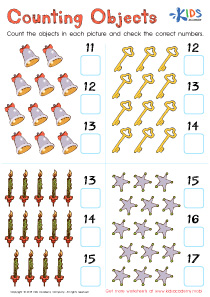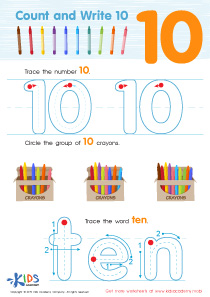Basic Addition Normal Numbers 0–10 Worksheets for Ages 3-7
3 filtered results
-
From - To
Explore our engaging Basic Addition Worksheets designed specifically for children aged 3-7, focusing on normal numbers from 0 to 10. These printable resources make learning fun and interactive, helping young learners develop essential math skills through hands-on activities. Each worksheet features vibrant visuals and simple addition problems that encourage critical thinking and problem-solving. Perfect for early math practice at home or in the classroom, our assessments are aligned with educational standards. Help your child build a solid foundation in mathematics while enjoying the excitement of learning through colorful and playful worksheets! Start their addition journey today with our user-friendly resources.
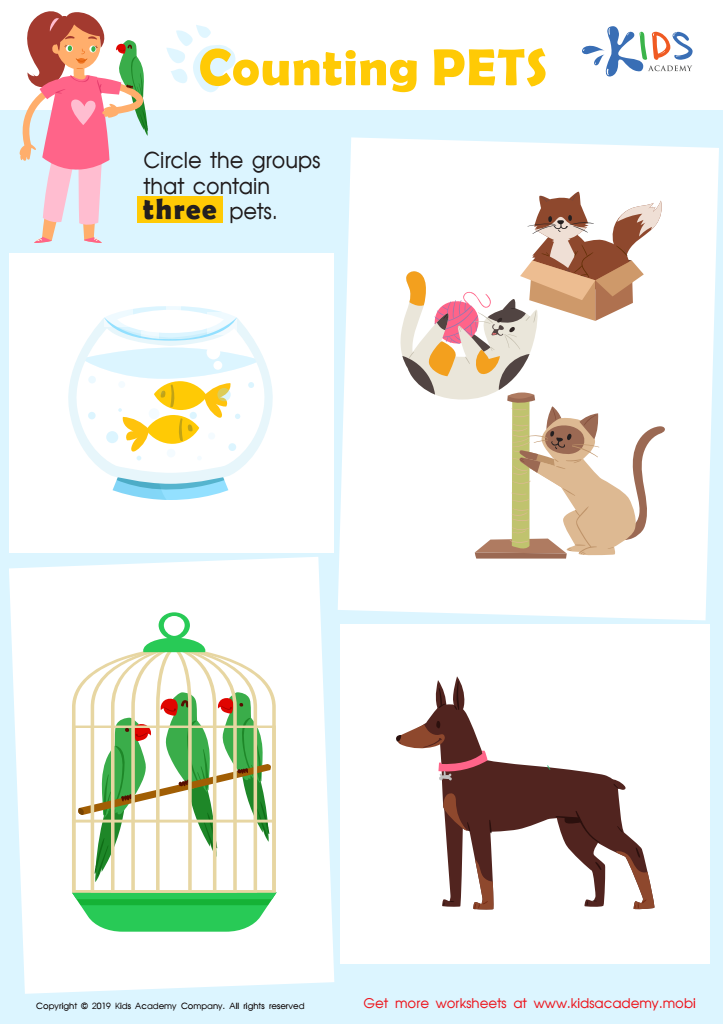

Counting Pets Worksheet
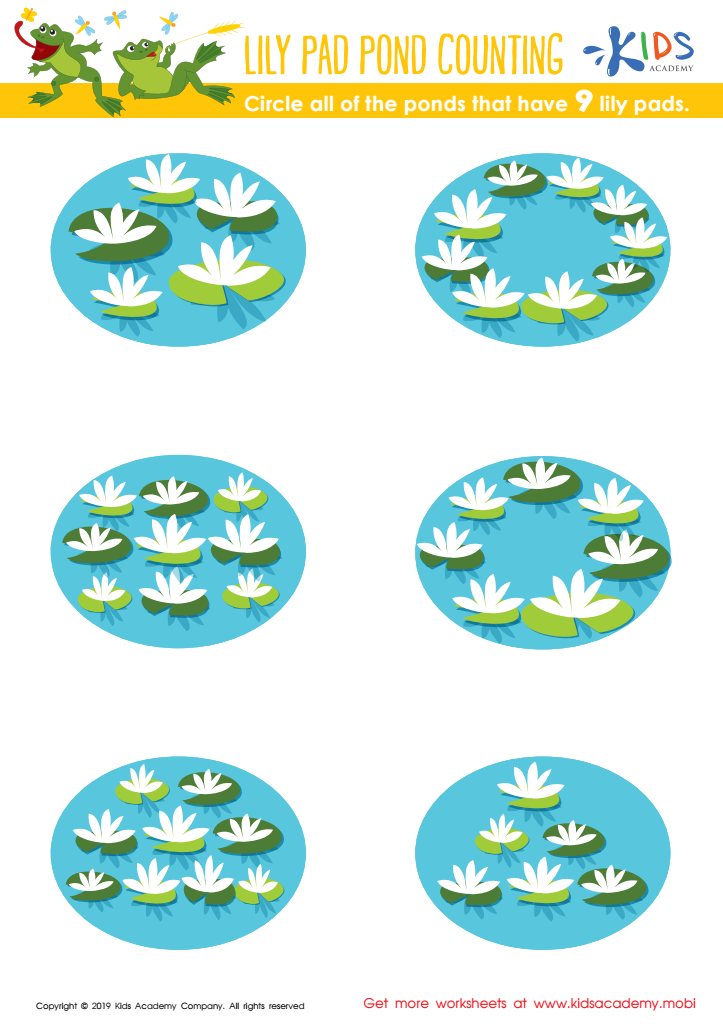

Lily Pad Pond Counting Worksheet
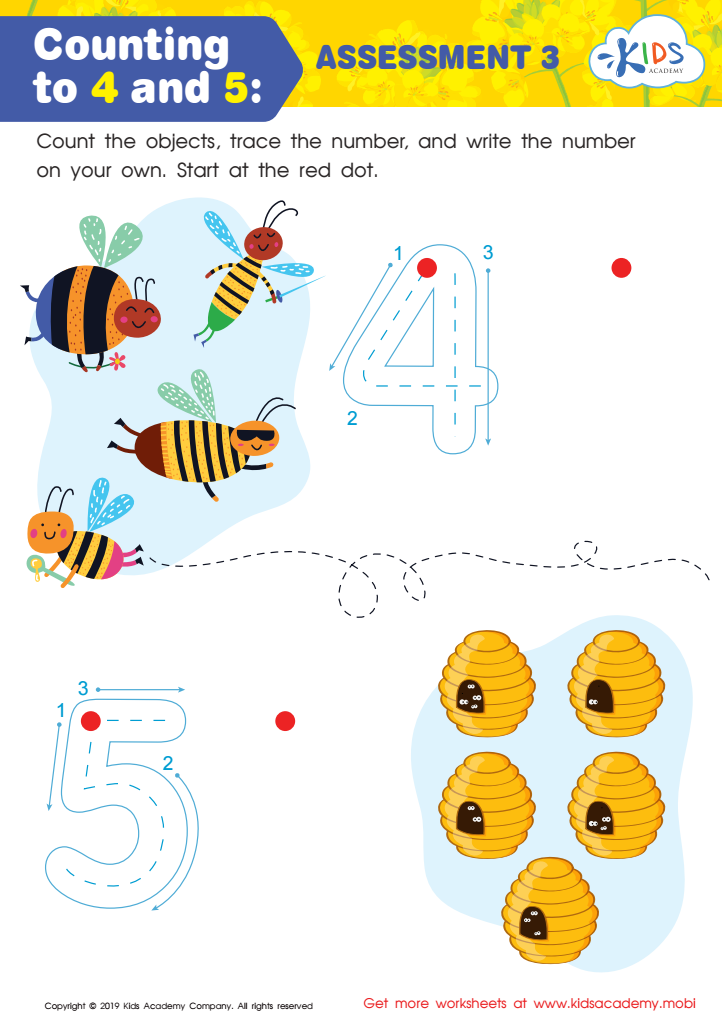

Counting to 4 and 5: Assessment 3 Worksheet
Teaching basic addition of normal numbers from 0 to 10 is foundational for children aged 3-7 and is essential for several reasons. Firstly, it fosters cognitive development; early mathematical skills help enhance critical thinking and problem-solving abilities. When young children engage with numbers, they begin to develop logical reasoning, laying the groundwork for more complex math in the future.
Additionally, early exposure to addition boosts numerical fluency, enabling children to recognize quantities and solve simple problems with confidence. This fluency serves as a stepping stone to understanding larger numbers and arithmetic concepts as they progress in their education. Practicing addition through fun activities makes learning engaging and helps instill a positive attitude towards math, reducing anxiety around the subject later in life.
Moreover, understanding basic addition supports social skills. Children can engage in cooperative learning through games and activities that involve counting and combining objects, promoting sharing and teamwork. Lastly, parents and teachers who prioritize these skills provide a supportive learning environment that nurtures curiosity and a love for learning, encouraging children to explore the world of numbers further. These early experiences are crucial in shaping their future academic success and confidence in mathematics.
 Assign to My Students
Assign to My Students









